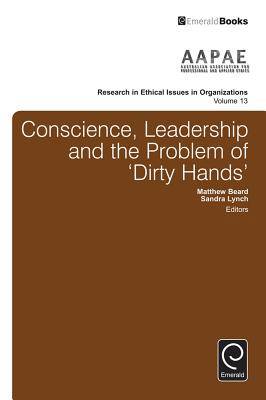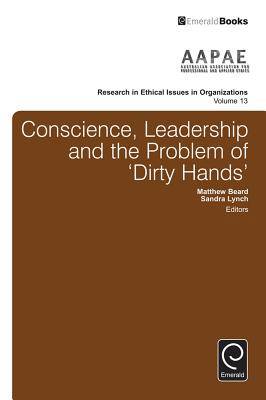
- Afhalen na 1 uur in een winkel met voorraad
- Gratis thuislevering in België vanaf € 30
- Ruim aanbod met 7 miljoen producten
- Afhalen na 1 uur in een winkel met voorraad
- Gratis thuislevering in België vanaf € 30
- Ruim aanbod met 7 miljoen producten
Zoeken
Conscience, Leadership and the Problem of 'Dirty Hands'
€ 254,95
+ 509 punten
Omschrijving
This volume contains a selection of papers from the 21st annual 'Australian Association for Professional and Applied Ethics' Conference. It addresses the key theme of Political Leadership, Professional Ethics, and the Problem of Dirty Hands. 'Dirty hands' is a somewhat nebulous concept. It may refer to professions whose objectives are so consequential that some ethical violations are considered justifiable. In another sense it might suggest situations where professional obligations might require the performance of deeds that contradict one's own moral beliefs. The term is perhaps most synonymous with political leadership and raises the question: Should leaders ever get their hands dirty? For applied ethicists, recognizing that sometimes there are compelling arguments in favor of certain moral violations is a professional necessity. This volume contains papers on a broad range of issues including discussions of medical ethics, military ethics, domestic political matters, and the very nature of 'professions' themselves. It will be of interest to those interested in politics, as well as those involved in research or training in ethics and professional practice.
Specificaties
Betrokkenen
- Uitgeverij:
Inhoud
- Aantal bladzijden:
- 216
- Taal:
- Engels
- Reeks:
- Reeksnummer:
- nr. 13
Eigenschappen
- Productcode (EAN):
- 9781785602030
- Verschijningsdatum:
- 28/07/2015
- Uitvoering:
- Hardcover
- Formaat:
- Genaaid
- Afmetingen:
- 160 mm x 241 mm
- Gewicht:
- 498 g

Alleen bij Standaard Boekhandel
+ 509 punten op je klantenkaart van Standaard Boekhandel
Beoordelingen
We publiceren alleen reviews die voldoen aan de voorwaarden voor reviews. Bekijk onze voorwaarden voor reviews.










